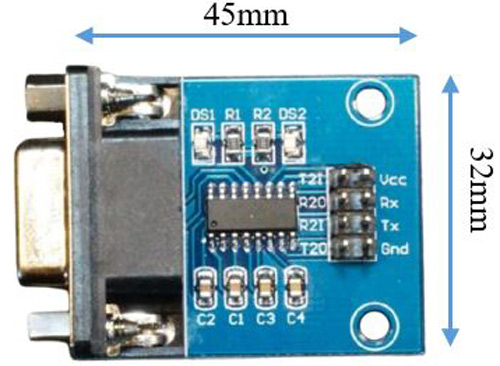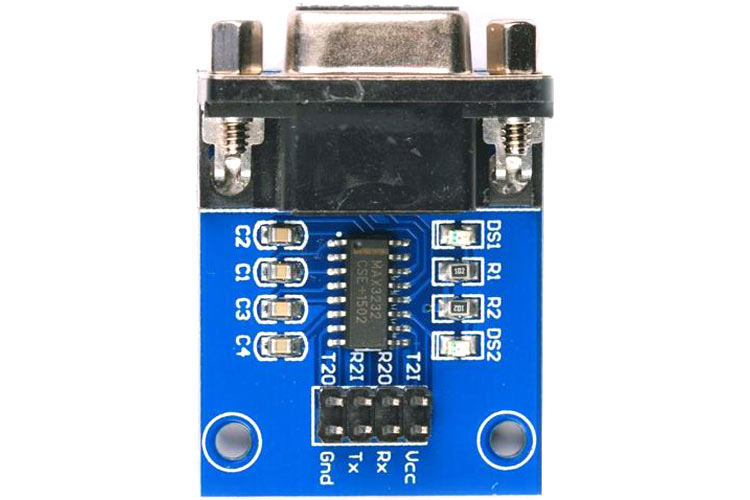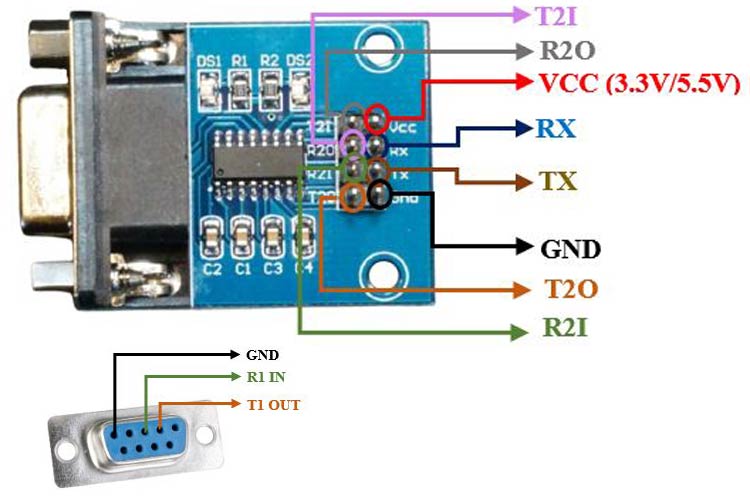MAX3232 - RS232 to TTL Serial Port Converter Module
The MAX3232 - RS232 to Transistor-Transistor Logic (TTL) Serial Port Converter Module is used to stabilize a Serial Communication between TTL and RS-232 ports. Most Microcontrollers these days have built-in Universally Asynchronous Receiver/Transmitter (UARTs) that can be used to receive and transmit data serially. The MAX3232 Module has a MAX3232 IC, that facilitates serial communication between a computer and a microcontroller.
Key Features
- Operating Voltage Range: 3.3V to 5.5V
- Maximum Current (mA): ±35mA
- RS232 Output Swing at 3.3V operating voltage: ± 6V
- RS232 Output Swing at 3.3V operating voltage: ± 9V
- The maximum operating bit rate: 250kilobits/s
- It has Built-in Charge Pumps circuits that generate the required positive (+ve) or Negative (-ve) voltages for RS-232
- Standard DB-9 Female Connector for RS-232 Connection.
Alternative
RS232 to TTL SP3232
MAX3232 Pinout Configuration
The MAX3232-RS232 to TTL Serial Port Converter module has two 4-pin headers on the board. The 4-pin row at the edge of the board is used for the interfacing.
A DB-9 Female Connector is at the opposite edge of the two 4-pin headers. The RS-232 connector can be connected with this DB-9 Female Connector.
|
Pin Description of the MAX3232 Module Board |
|
|
Pin Name |
Pin Description |
|
GND |
Ground |
|
Tx |
Transmitter ( R1OUT on MAX3232 Chip) |
|
Rx |
Receiver ( D1IN on MAX3232 Chip) |
|
Vcc |
3.3V or 5V |
|
T2O |
D2OUT on MAX3232 chip |
|
R2I |
R2IN on MAX3232 chip |
|
R2O |
D2OUT on MAX3232 chip |
|
T2I |
D2IN on MAX3232 chip |
Connection of MAX3232 - RS232 to TTL Converter Module
The 4-Pin headers at the edge of the board can be connected to a breadboard or a microcontroller project board, And the DB-9 Female connector allows the users to connect the Entire Module to a COM port of a computer.

Applications
MAX3232-RS232 to TTL Module can be used in:
- Radio Modification
- Phone Flash
- DVD Flash
- Program STC MCU, NXP MCU, STM32 MCU, etc.
2D Model
The 2D model in this section consists of the module's dimensions in millimeters. This information can be used for designing custom footprints of the module, which can be used for PCB designing and CAD modelling.











